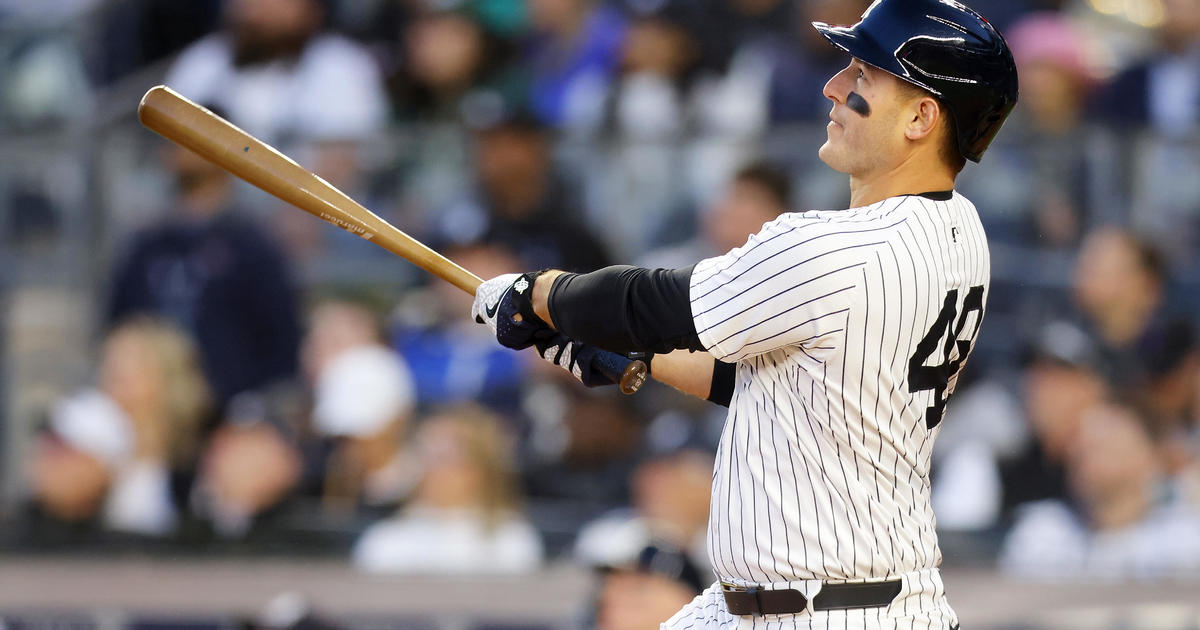Official: Alcohol, Oxycodone To Blame In Death Of Rangers' Derek Boogaard
NEW YORK (WFAN/AP) -- A medical examiner in Minnesota has ruled the death of Rangers enforcer Derek Boogaard was an accident, due to mixing alcohol and oxycodone.
The Hennepin County Medical Examiner released Boogaard's cause of death on Friday. The medical examiner says no other data will be released.
The 28-year-old player was found dead last Friday in his Minneapolis apartment. The news rippled across the NHL, where the 6-foot-7 Boogaard was a fan favorite.
Boogaard was known as "The Boogeyman" — one of the league's most feared fighters. He signed a four-year, $6.5 million deal with the Rangers in July and appeared in 22 games last season. He had a goal and an assist to go with 45 penalty minutes.
His final game was Dec. 9 at Ottawa when he fought Matt Carkner and sustained a concussion and shoulder injury. That was the 70th fight of his NHL career.
Boogaard was out for the last 52 games of the regular season because of his injuries and did not play in the playoffs. He didn't skate again until about three months after the concussion. He was sent home to Minnesota late in the season to work on conditioning.
In several player polls, Boogaard was voted as the league's most intimidating player. When the Rangers signed him last summer, general manager Glen Sather said the decision was made because Boogaard was "the biggest and toughest."
This is the second death of a player in the Rangers organization in the past three years. Alexei Cherepanov, drafted in 2007 but never signed by New York, died at 19 in Chekhov, Russia, in 2008, after collapsing on the bench during a game.
Roman Lyashenko, who briefly played with the Rangers several years ago, was found dead in a hotel in Turkey in 2003. His death was believed to be a suicide.
Boogaard's agent and a spokeswoman for the Boston University School of Medicine said earlier this week that Boogaard's brain will be examined for signs of a degenerative disease often found in athletes who sustain repeated hits to the head.
Earlier this year, Boston University revealed that former enforcer Bob Probert suffered from the degenerative brain disease chronic traumatic encephalopathy (CTE). Probert died of a heart attack last July at age 45. Reggie Fleming, a 1960s enforcer who played before helmets became mandatory, also had CTE.
Boogaard began his NHL career with Minnesota and appeared in 255 games with the Wild from 2005-10. He missed four games with the Wild because of a concussion. In 277 regular-season games with Minnesota and the Rangers over six seasons, he had three goals and 13 assists and 589 penalty minutes.
Leave your thoughts on Derek Boogaard in the comments below...
(TM and Copyright 2011 CBS Radio Inc. and its relevant subsidiaries. CBS RADIO and EYE Logo TM and Copyright 2011 CBS Broadcasting Inc. Used under license. All Rights Reserved. This material may not be published, broadcast, rewritten, or redistributed. The Associated Press contributed to this report.)
STATEMENT FROM THE FAMILY OF DEREK BOOGAARD
New York, May 20, 2011 – The family of Derek Boogaard issued the following statement today through the National Hockey League Players' Association:
"We would like to express our appreciation for the outpouring of love and support for our family during this difficult period as we grieve the loss of Derek – our son and brother. We are deeply saddened by this unimaginable loss, but we are grateful for the expression of support that has given us strength as we go through this tragic time.
It is very comforting for our family to know that, while Derek's life was far too short, he had a great impact on many people who he came into contact with. We are proud that Derek was able to live his boyhood dream to play in the National Hockey League. We are even more proud of the fact that Derek was dedicated to making a difference in his adopted communities of Minnesota and New York City, through his countless hours of charitable work.
Earlier today, we received the results of Derek's toxicology report at the time of his accidental death. After repeated courageous attempts at rehabilitation and with the full support of the New York Rangers, the NHLPA, and the NHL, Derek had been showing tremendous improvement but was ultimately unable to beat this opponent. While he played and lived with pain for many years, his passion for the game, his teammates, and his community work was unstoppable.
Our family would like to like to thank the New York Rangers, the Minnesota Wild, the National Hockey League Players' Association, and the National Hockey League for supporting Derek's continued efforts in his battle.
Derek will be greatly missed and will never be forgotten by his fans, friends, and teammates, and especially by us – his family. We respectfully ask for continued privacy as we grieve the loss of Derek."



